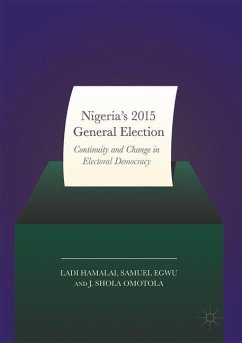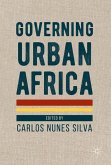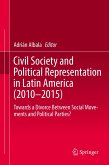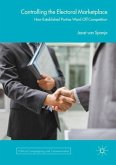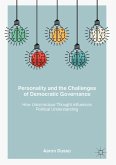This book examines the significance of the 2015 elections in consolidating Nigeria's democracy, in the context of the difficulty of routinizing democracy since the attainment of nationhood in 1960 and the return to civil rule in May 1999, in particular. It offers a complete analysis of Nigeria's electoral process, outlining how the dynamics of limited changes in the constitutional, institutional, attitudinal and behavioural frameworks that underpin electoral competition played out in the elections. The authors further examine the conduct and outcome of the 2015 elections against the background of the pattern of electoralism that had been established since the return to democracy in 1999. In doing so, they draw attention to the dialectics of continuity and change that have been thrown up by the elections and how the lessons learned can be used to build a more enduring democratic system. The book will be of interest to students and academics of political science, development studies,democratisation and election studies, and African government and politics.
Bitte wählen Sie Ihr Anliegen aus.
Rechnungen
Retourenschein anfordern
Bestellstatus
Storno

